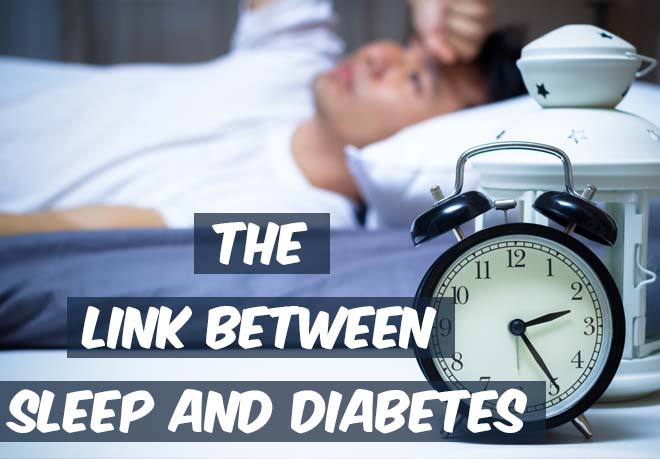Type 2 diabetes mellitus (T2DM) is mostly associated with higher incidence of sleep disorders, which may be due to disease itself or due to secondary complications of diabetes. However, shorter sleep duration and erratic sleep behavior itself have been linked with higher incidence of obesity, metabolic syndrome and T2DM. Sleep disturbances are more common in people suffering from diabetes. Diabetic patients usually suffer from sleep disorders like insomnia, day sleepiness, disturbances in sleeping pattern, etc.
Multiple factors may contribute to insomnia in persons with diabetes:
- pain associated with peripheral neuropathy
- periodic limb movements
- restless leg syndrome
- rapid changes in blood glucose levels during night leading to hypoglycemic and hyperglycemic episodes, nocturia and depression.
Image Credit: Thediabetescouncil.com
Categories of Sleep:
The categories of sleep disturbances that contribute to obesity and T2DM include the following:
(1) alterations of sleep duration, chronic sleep restriction, and excessive sleep
(2) alterations in sleep architecture
(3) sleep fragmentation
(4) circadian rhythm disorders and disruption (i.e., shift work).
Epidemiological data have suggested higher risk of obesity and T2DM in individuals with shorter sleep duration (<4–5 h/night) as well as those of poor sleep quality.
Difficulty initiating sleep increased the risk of T2DM by 57%, while difficulty maintaining sleep increased its risk by 73%. Similarly, the risk of developing T2DM associated with insufficient (≤5 h/day) or excessive sleep duration (≥9 h/day) or performing shift work was comparable to that of being physically inactive.
Two studies revealed that the insulin response to an oral glucose challenge was higher when comparing the total sleep deprivation condition to the normal sleep condition. This suggested that an insulin resistant state was induced by acute sleep deprivation. Another study reported that a 1-week period of sleep restriction (only 4 h of sleep daily) in young, healthy subjects could lead to a prediabetic state.
Metabolism and Mechanism of sleep disorders and diabetes :
Possible causes of impaired glucose metabolism in sleep disordered breathing (SDB) might be intermittent hypoxia and sleep fragmentation associated with them. Sleep fragmentation increases sympathetic activity, which in turn increases blood glucose levels by decreasing insulin sensitivity.
Diabetes and Sleep Apnoea:
Obstructive sleep Apnoea (OSA) is a sleep-related breathing disorder characterized by collapse of the upper respiratory tract leading to cessation of airflow in the setting of continued respiratory effort. This results in hypoxia which inturn leads to frequent arousals causing sleep fragmentation and symptoms of excessive daytime sleepiness. The prevalence of OSA in the population with type 2 diabetes may be as high as 24%, and the prevalence of any SDB may be as high as 59%.
Common symptoms of OSA include:
- Loud snoring
- Frequent cessation of breathing during sleep
- Choking and gasping episodes during sleep
- Waking up sweating during sleep
- Feeling unfreshed in the morning after apparently adequate night sleep
- Morning headaches
- Excessive daytime sleepiness and lethargy
- Rapid weight gain and cognitive deficits
Evaluation of sleep disorders :
Assessment of sleep quality, sleep disorders, and sleep hygiene is of primary importance in persons with diabetes. As discussed earlier above, etiology of sleep disruption in diabetes is often multifactorial. Hence, a detailed history, careful examination and some laboratory investigations will be required for successful evaluation and subsequent treatment of sleep disorders in this population. Maintaining a 2 week diary would help ascertain the sleeping pattern.
Management of sleep disorders:
Behavioral approaches are very important in the management of insomnia, which include adherence to good sleep hygiene, sleep restriction, cognitive behavioral therapy, and relaxation therapies. Yoga, meditation, improving life style also helps in improving sleeping patterns. Eating excessive in night time result in increase glucose levels in blood which may lead to nocturia. Thus eating habits needs to be monitored on regular basis and exercise daily to maintain body weight. BMI needs to be monitored.







